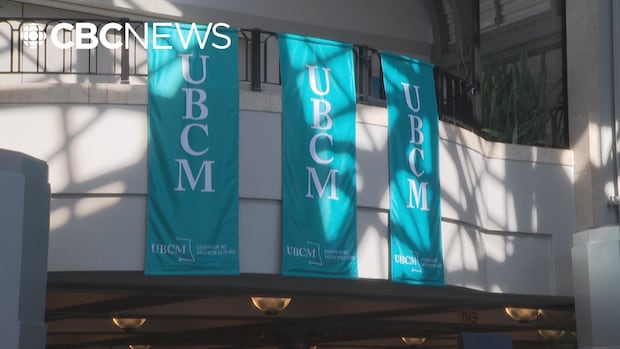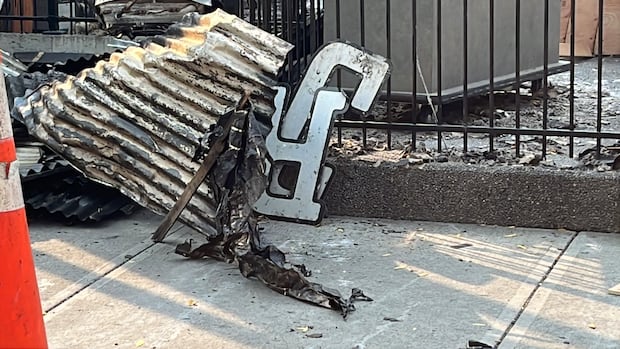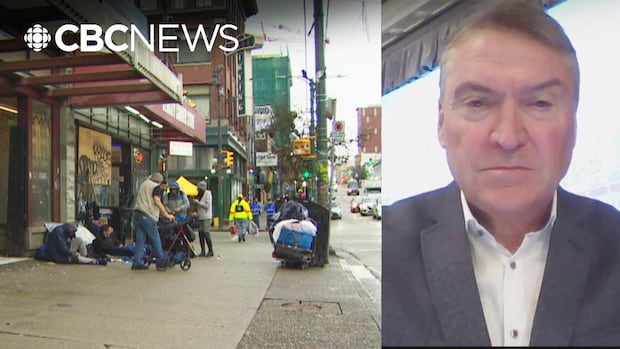The annual convention of the Union of B.C. Municipalities (UBCM) — where mayors and councillors from across the province meet to lobby the government and debate policy — is a useful conference for a number of reasons, one of them being to provide a marker for how public sentiment changes over time.
In 2019, a mid-sized session on the first day of UBCM was about the overdose crisis. After the provincial government talked positively about its strategy and Vancouver Mayor Kennedy Stewart pushed his campaign to decriminalize the use of some harder drugs, Nanaimo Mayor Leonard Krog took the microphone to mildly critique the government and talk about “compassion fatigue.”
“We need help in the worst way, and in the meantime, the reservoir of public sympathy is fast evaporating because of the level of crime related to addiction,” he said.
Krog’s thoughts in 2019 were mostly downplayed by the province, which at that point was pointing to slightly reduced overdose deaths and the creation of a new Ministry of Mental Health and Addictions.
While some agreed with Krog, it wasn’t a main focus of the UBCM agenda, with only about 100 delegates at the session most of the focus on other issues like housing, reconciliation and climate change.
WATCH | Mayors at UBCM pushing for action on crime, addiction: 
Street disorder and homelessness top issues at municipalities convention
A number of B.C. mayors are pushing for mandatory treatment for mental health and addiction as municipalities meet for the annual UBCM convention. CBC’s municipal affairs reporter Justin McElroy joins us now with more.
In 2025? It’s the main course, with a widespread belief by politicians at the convention that strategies pursued over the last six years haven’t worked.
“In our desire to be compassionate, we have sometimes lost the balance with accountability. And when anything goes, it really does,” said Julien Daly, CEO of Our Place, a prominent Victoria shelter and outreach centre.
He said it to a packed ballroom of hundreds of delegates, at the start of the most anticipated session of the first day, entitled “Disordered Downtown.”
“When the legal system doesn’t support charges, and there are seemingly no consequences for activity, they feel powerless … this normalization fosters complacency, and reduces the urgency to respond to human suffering.”
WATCH | Downtown businesses say they can no longer operate without improved security: 
Prince George brewery destroyed by alleged arson says it won’t rebuild unless ‘security improves’
A popular Prince George, B.C., brewery destroyed by alleged arson says it won’t be rebuilding unless the safety situation in the city’s downtown improves. As the CBC’s Andrew Kurjata reports, that’s expected to be one of the top issues, as municipal leaders from around B.C. meet in Victoria later this month.
The interest and applause for Daly and other speakers during the session showed just how much had changed in six years. It also showed how the scope of the issue had changed.
‘Tough up in Terrace’
All 161 municipalities and 27 regional governments are at this conference, and it’s a reminder that the communities of Burnaby or Saanich aren’t the same as Bella Coola or Silverton.
But increasingly, the overlapping crises of homelessness, mental health supports, crime, safety and housing affordability have dominated the discussion at this conference, reflecting the fact that in B.C., they increasingly show no geographic boundary.
“Things are tough up in Terrace,” said Terrace Mayor Sean Bujtas.
The northern community with a population of 12,000 recorded 156 homeless people in its last count, said Bujtas, a per capita number far higher than Vancouver or other big cities.
He said that causes a greater impact on downtown and core services, even if it gets less attention from politicians and the media.
“You’re seeing more and more people committing crime in our communities not paying the price … and it infects the entire city.”
WATCH | Kelowna mayor talks about street disorder in his community: 
Municipalities were never designed to deal with mental health and addiction, says Kelowna Mayor
Mayor of Kelowna, B.C. Tom Dyas says cities are facing rising street disorder. A number of mayors are pushing for mandatory treatment for mental health and addictions, as municipalities meet for the annual UBCM convention.
Bujtas didn’t speak at the Disordered Downtown session. But the mayors of the similarly sized Nelson and Dawson Creek did, reflecting the way these types of overlapping systemic issues are impacting many more B.C. communities than used to be the case.
Slow pace, changing sentiments
Of course, it’s one thing to acknowledge a problem, but another to figure out how to improve it — especially if you’ve spent several years trying to address it, without much in the way of progress.
“One of the challenges is that the pace is very slow,” said Victoria Mayor Marianne Alto, at a news conference of big city mayors talking about the need for the province to build and approve more low-income housing and spaces for people with mental supports.
“Millions of dollars have been spent on this. Has it gone for nought? No, it’s changed people’s lives. Has it solved the problem? No, it hasn’t.”
LISTEN | Dealing with crime and disorder at UBCM:
BC TodayDealing with crime and street disorder at UBCM
Municipal leaders across B.C. are in Victoria this week for the annual Union of BC Municipalities Conference. One major topic being discussed it street disorder and crime. We’re asking what impact this has on local communities, and what steps need to be done to address it.
While the province didn’t provide a cabinet minister at the Disordered Downtown session, their chief scientific advisor for toxic drugs, Dr. Daniel Vigo, gave a speech.
He provided a chart showing the amount of changes the province has made in recent years, including the creation of more mental health units, expanded beds across the continuum of care, and streamlining access to life-saving pharmacotherapies.
At the same time, he showed a different sheet, which said a reason for the rise of the problem in the last decade was a “blind spot over concurrent disorders” and a “drift away from evidence-based medical treatments.”
LISTEN | Cities attempting to deal with downtown disorder:
The CurrentHow far are cities willing to go to address crime?
Cities in Canada have been taking unprecedented measures to deal with crime in their city — like hiring private security guards to patrol their downtowns. Some have even declared a state of emergency. We speak with the Mayors of Smithers, BC., and Barrie, ON., to talk about the unprecedented path they’ve taken to address public safety, crime, addiction, and homelessness in their communities.
If left a lot for delegates at the convention to consider — including Krog, still the mayor of Nanaimo six years later.
Monday, he was no longer critiquing the province from side of a ballroom; he was on the Disordered Downtown panel receiving applause from a crowd of 300.
“I want to say Mr. Daly, I think you must have gotten into my brain,” he said.
“You talk to people in our communities, the top issue is no longer potholes or garbage or parks. It’s safety on our streets.”
